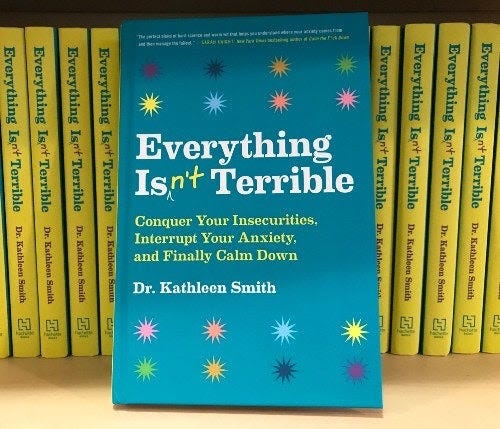This week I’m thinking about all the ways we abandon ourselves to keep our relationships predictable and steady.
In her book Alone Together, psychologist Sherry Turkle wrote, “As we distribute ourselves, we may abandon ourselves.”
Turkle is referring to the danger of our online personas, but I’d argue that self-abandonment is hardly a modern phenomenon. People have been changing themselves to please the group since the dawn of time. Most of us can say we’ve changed beliefs to please our families, changed our fashion to match our friends’, or changed a conversation topic to avoid potential conflict.
When our goal is to please others or to avoid upsetting others, our relationships become watered-down versions of themselves.
We water down our relationships by:
Relying on superficial topics to carry a conversation.
Only communicating with them in a group (group texts, gatherings, etc.).
Gossiping about others.
Complaining about others.
Only relaying info about others (i.e. your kid).
Talking about other people’s beliefs and not your own.
Talking about other’s experiences and not your own.
Asking them questions without talking about yourself.
Agreeing with them even if you disagree.
Disagreeing with them just to play devil’s advocate.
Only talking when you’ve been drinking.
Only doing what the other person wants to do.
It’s sobering to think about how many relationships are built on a foundation of superficial chatter, disdain for a third person, or let’s be honest, alcohol. Marriages slog along by having a kid to worry about or a cocktail in the evening. Coworkers unite by hating their boss. Families maintain détente by never talking about anything significant.
But what gets lost when we do this?
Try picking one relationship in your life, and start paying attention to how you avoid bringing your actual self to the table. Do you always ask about the weather? Do you always put your kid on the phone, or ask to talk to your other parent? Do you turn on the TV, scroll through your phone, or focus on what adorable thing the dog is doing?
What would it look like to add some flavor to these relationships? To begin to share thinking that’s important to you, or a challenge you’ve had over the past year? An experience that was bewildering or exciting?
In order to do this, you have to let other people be in charge of themselves. Because when you try to manage their reaction or read their mind, you’re likely to shift back to what’s safe and superficial.
There is perhaps no greater gift than to be treated like you’re capable of hearing a person’s beliefs, experiences, and hopes for the future.
News from Kathleen
Recently I had a wonderful chat on the podcast, This Might Get Uncomfortable, about people-pleasing, overfunctioning, and anxiety. Give it a listen.
Want to support my free newsletter? Buy me a coffee to keep the thoughts flowing.
Want to read more of my writing? You can read my weekly essay for Medium’s Forge Magazine, read old newsletters at my website, or buy my book Everything Isn't Terrible from Amazon, Barnes and Noble, Indiebound, or anywhere you buy books!
Want a free anxiety journal? Calming Down & Growing Up: A 30 Day Anxiety Journal includes thirty daily prompts to help you reflect on and respond to your anxious behaviors. To receive a copy, submit a copy of your receipt for my book at the Hachette page. Or you can email me.
Follow me on Twitter, Facebook, or Instagram, or email me if you have questions about my therapy practice in Washington, DC, virtual Bowen theory coaching, or having me speak to your group.
Want to learn more about Bowen theory? Visit the Bowen Center’s website to learn more about their conferences and training programs.





